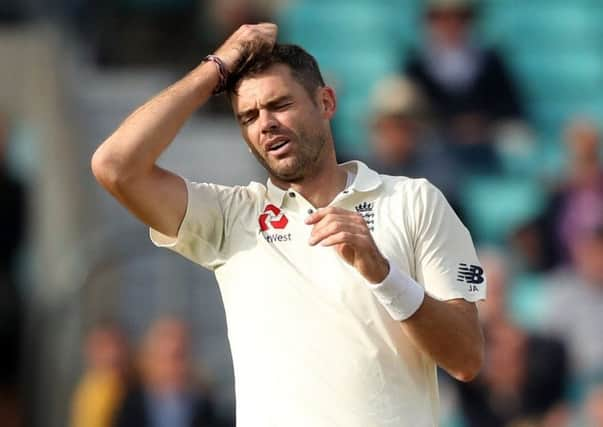Chris Waters: Folly of ignoring generation game in the '˜great' debate over Jimmy Anderson


As you will no doubt be aware, Burnley-born Anderson recently passed Australian Glenn McGrath’s record as the highest wicket-taking pace bowler in Test cricket, finishing the recent series against India with a career tally of 564 at an average of 26.84.
READ MORE - Darren Gough’s column on Jimmy Anderson
Unsurprisingly, it has led to numerous column inches being devoted to Anderson’s place in the pantheon, with Alastair Cook going so far as to describe him as the greatest cricketer that England have produced.
Advertisement
Hide AdAdvertisement
Hide AdNasser Hussain recently said the same thing of Cook himself, following Cook’s retirement from international cricket after he ended as England’s leading Test match run-scorer.
At first glance, Gough’s claim of Anderson seems a bit like heresy – as though it was uttered by a pipe-spluttering Fred Trueman unable to concur with any belief that did not hold Trueman himself to be t’finest bloody fast bowler who ever drew breath.
Gough said it was “hugely disrespectful” to some of the great bowlers of yore (presumably, Trueman included) to say that Anderson is the best of all-time and pointed out that Anderson’s home record is much superior to his away record.
For the record, Anderson has captured 368 of his wickets at home at an average of 23.76 compared to 196 away at 32.63.
Advertisement
Hide AdAdvertisement
Hide AdGough added that: “I think the real true greats are the ones who have very similar averages home and away” but praised Anderson to the extent that he said of him: “There is no-one who can use a new ball, especially a Dukes ball, like him. He swings the ball both ways with control and very little change of his action.”
Anderson, for my money, is an all-time great, but Gough was pointing out that there have been many great cricketers – not all of them necessarily belonging to this era – and that it would be as well to remember as much.
In the modern era alone, McGrath took his wickets at 21.64 compared to Anderson’s 26.84, while Dale Steyn’s Test wickets have come at 22.64 and Shaun Pollock’s at 23.11. Trueman’s 307 Test wickets, as he may or may not have mentioned from time to time, arrived at 21.57 – “and it would have been 500 bloody Test wickets if I’d played in all the bloody Test matches I should have played in, sunshine”.
The point is, there have been many great bowlers over many, many years, and the easiest trap to fall into is the one that cannot see past the here and now.
Advertisement
Hide AdAdvertisement
Hide AdDitto when people argue that Cook is the greatest England batsman, considering that he averaged just 45 – the lowest average, incidentally, of the top-15 run-scorers in Test history.
Many great English batsmen have averaged a lot more than that – Herbert Sutcliffe, Wally Hammond, Len Hutton, Ken Barrington, Jack Hobbs, and so on.
Indeed, the temptation to ignore history was evidenced by many people’s selections for the greatest England side of all-time to mark the occasion of the country’s 1,000th Test match in August, when the likes of Hobbs and SF Barnes (who he?) were routinely omitted.
Of course, such debates, although thought-provoking, are essentially futile.
As everyone knows, it is impossible to effectively compare sportsmen across different generations.